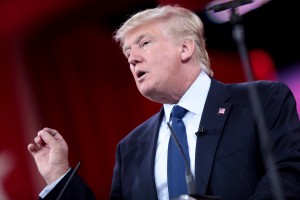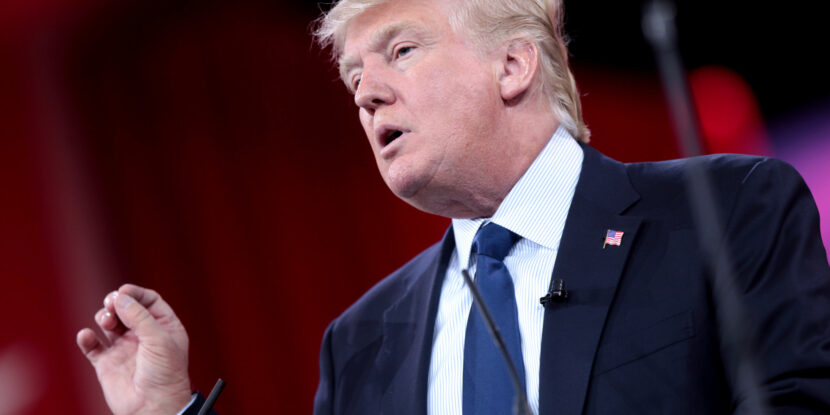
Donald Trump is well on his way to winning the Republican presidential nomination. This owes substantially to the party’s bias for “winner-take-all” and “winner-take-all-lite” primaries.
Trump will come out of the four earliest beauty contests states (Iowa, New Hampshire, South Carolina, and Nevada) with a solid lead in delegates, assuming he wins in New Hampshire and South Carolina, as now looks likely. South Carolina is the big prize, and it is a winner-take-all state, notwithstanding the RNC rule that there be no winner-take-all primaries before March 15.
Ted Cruz leads in Iowa, and a win there will give him momentum enough to insure he is above the 10 percent New Hampshire threshold for delegates. But the small number of New Hampshire delegates (23) could get divided 5 ways. The Nevada caucuses do not have a threshold, and so will divide their delegates between multiple candidates. Trump could end February with a 4-1 lead in delegates over his nearest competitor — which looks at this point to be Cruz.
Then comes the SEC primary, in which five states (Alabama, Georgia, Tennessee, Texas, and Vermont) have a 20 percent popular vote threshold to win any delegates. Who’s currently competitive to clear the 20 percent threshold: Trump and Cruz. Minor candidates get bupkis (a candidate who gets 9 percent in each of the SEC states will get roughly 15 delegates, or 2 percent of the delegates awarded). Cruz cleans up in Texas, and we’ll see how well Trump runs in the Southern States, although if South Carolina is any indication, he’ll do just fine in the Bible belt.

It is essential to Trump’s strategy to keep everyone in the race until March 14, in order to minimize the likelihood another candidate reaches the 20 percent threshold. You gotta give Trump credit for magnificently goading Jeb! Bush into staying in the race ‘til the bitter end.
This might also explain Trump’s motivation for calling Rand Paul a terrier. And now Chris Christie, Marco Rubio, John Kasich, and Jeb Bush have jumped into the mosh pit and are doing Trump’s work for him by sliming each other. What’s the prize here, third place in New Hampshire? It was Rubio who said he wouldn’t attack his opponents, but now defends his super-PAC attacks on Christie: “there’s nothing in them that’s inaccurate.” He’s precious, this Rubio guy, a hot-house orchid.

Come March 15, five of six primary states are winner-take-all (including Florida), and it is hard to see right now why Trump doesn’t sweep. Unless, of course, by that time his act gets old. Trump needs to prepare for the eventually that this becomes a two-man race, which it likely will be following March 1. He’s very smart, and doubtless has figured that out.
Trump’s latest TV ad, “Great Again,” is not effective because it doesn’t tell us anything new about Trump: he’s still against the Islamic State and illegal immigration. But notice that it does “clarify” his position on Muslim immigration. Had he said initially what the ad says now, his position would have been much less assailable.
This is the month of Donald 2.0. His pronouns will shift from “I” to “you.” He will stop talking about himself and talk instead more about the pain so many Americans are suffering. He will speak, as he has begun to already, about the hijacking of fundamental American values, and of faith, and of creating a society nurturing of families. He will audition, in competition with Cruz, to be the most effective critic of Hillary Clinton. He will work to alleviate concerns that he is imprudent, because prudence is the sine qua non of a presidential candidacy. He will do these things because he is incredibly intuitive and reads his situation with greater clarity than anyone else in politics today. He will do these things because, despite the boost he has received from the Republican Party’s rules, he knows he is at 30 percent, and that isn’t enough to win a two-way race.
Steve Wagner is president of QEV Analytics, a public opinion research firm, and a senior fellow at the American Principles Project.


